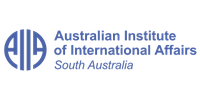Drawing on 20 years of annual field visits to Rwanda, this presentation focuses on the country's model of "illiberal welfare" – one of Sub-Saharan Africa's most extensive social protection systems, delivered in a highly repressive political environment.
This presentation examines how everyday Rwandans navigate a state that provides substantially in socio-economic terms while greatly limiting their basic freedoms. Rwanda's welfare system has tangibly improved the lives of millions of citizens across the ethnic divide, laying a vital foundation for post-genocide reconciliation. However, state repression undermines some of those gains.
This presentation analyses Rwanda's successes and pitfalls in addressing socio-economic inequality as a key driver of mass conflict. This includes an analysis of Rwanda's handling of Covid-19 – based on 5 months' fieldwork in the country at the height of the pandemic – during which time the Rwandan economy and welfare system collapsed. Understanding the impact of Rwanda's approach to "illiberal welfare" is key to gauging how far the country has progressed since the genocide, its prospects over the coming decades and its lessons for other societies recovering from mass violence.
The session will commence with a light lunch.
This event is hosted in partnership with Flinders University. Event registration will be managed by Flinders University. RSVP required.
Online and in-person participation welcome.
To RSVP, please email julie.dover@flinders.edu.au
*Photo by the Government of Rwanda.

